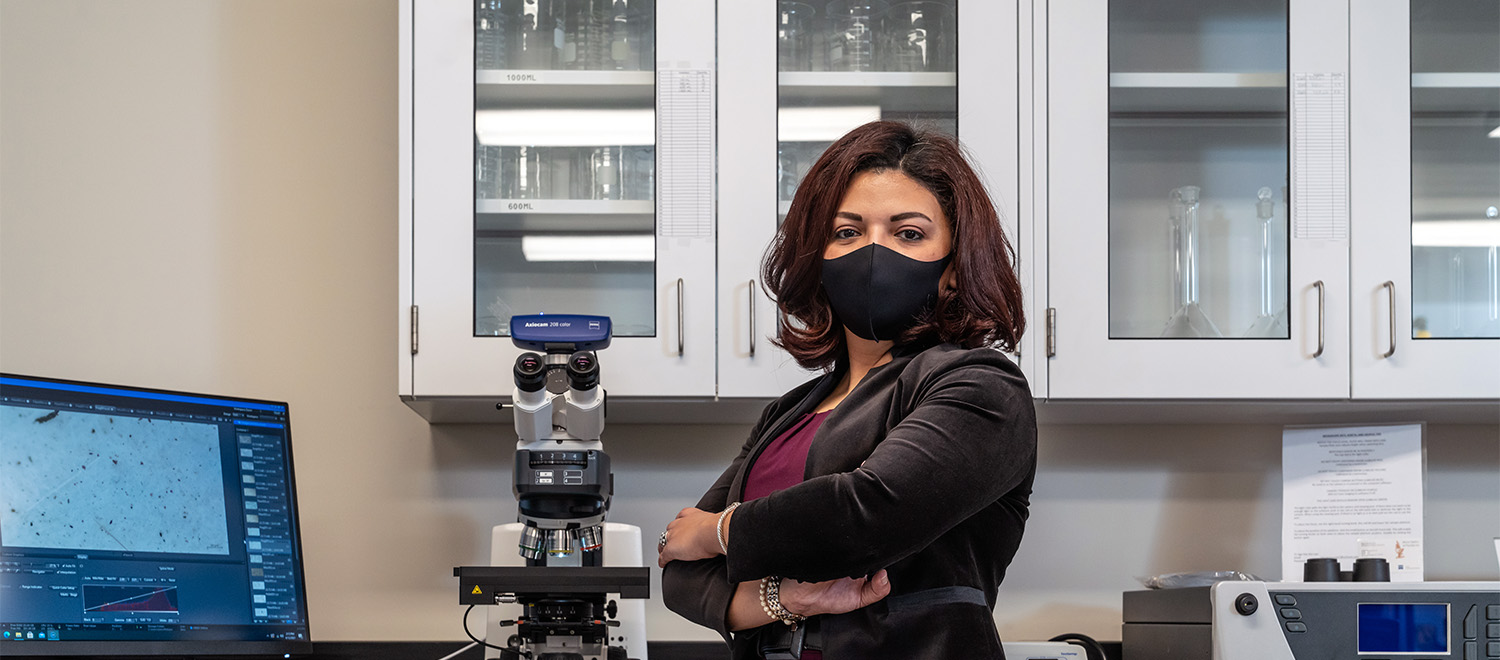When she was a child, Marwa El-Sayed, Ph.D., remembers feeling frustrated when seeing smog in the air over her home in Cairo, Egypt, or plastic trash strewn on the beach at the Red Sea.
“I knew the problems were there because I was seeing and smelling them,” El-Sayed says. “And I felt like we needed to do something about it.”
Now an assistant professor of civil engineering at Embry-Riddle’s College of Engineering, El-Sayed is working toward that goal, focusing on air pollution and microplastics research in her new Sustainability and Environmental Engineering Lab.
The lab was established in 2020 to measure, monitor and analyze environmental contaminants, with a focus on researching atmospheric pollutants.
Undergraduate students Alexis Smith and Atharv Dangore are working with El-Sayed on microplastics research, collecting and analyzing samples from the atmosphere. They will be partnering with Johns Hopkins to examine the health effects on humans of inhaling these microplastics through the air.
“Microplastics in the atmosphere are tiny, and they can be transported with wind,” El-Sayed says. “We don’t know how they affect us when we inhale them.”
Smith and Dangore presented their research in 2021 at the National Conference for Undergraduate Research, as well as the university’s Discovery Day. They also presented at the 2021 Air Quality Workshop at the University of Florida, which highlighted research projects from around Florida concerning air quality.
El-Sayed encourages her students to look holistically at environmental engineering solutions. “You have to think about the big picture,” she says. “You have to see if the proposed solutions are economically and socially sustainable.”
Ultimately, El-Sayed says she hopes to make a positive impact on the environment with her research, and she encourages her students to strive to do the same.
“I like to convey to my students that they shouldn’t fear making a difference,” she says. “They can stand out and be willing to be agents of change.”
